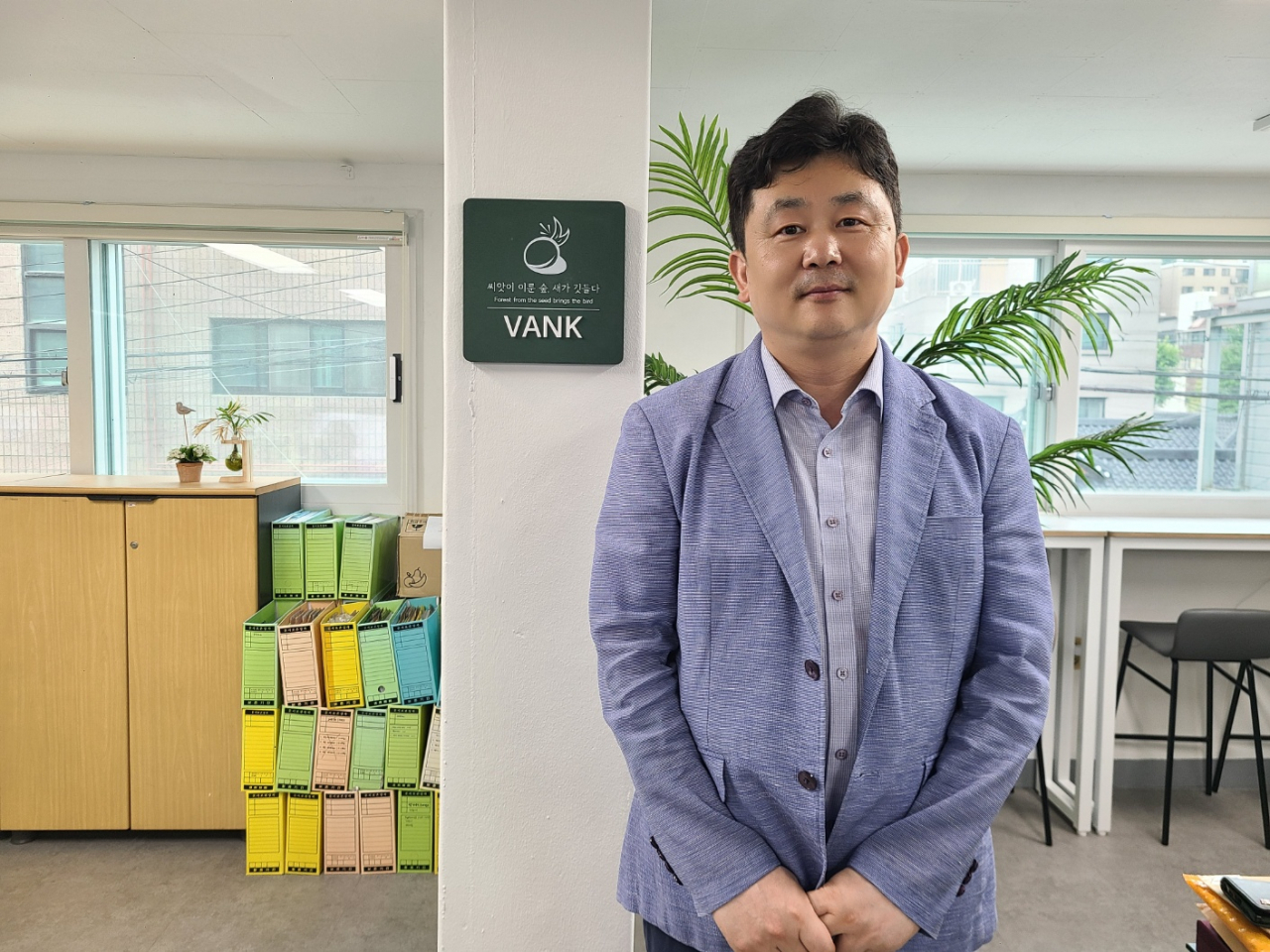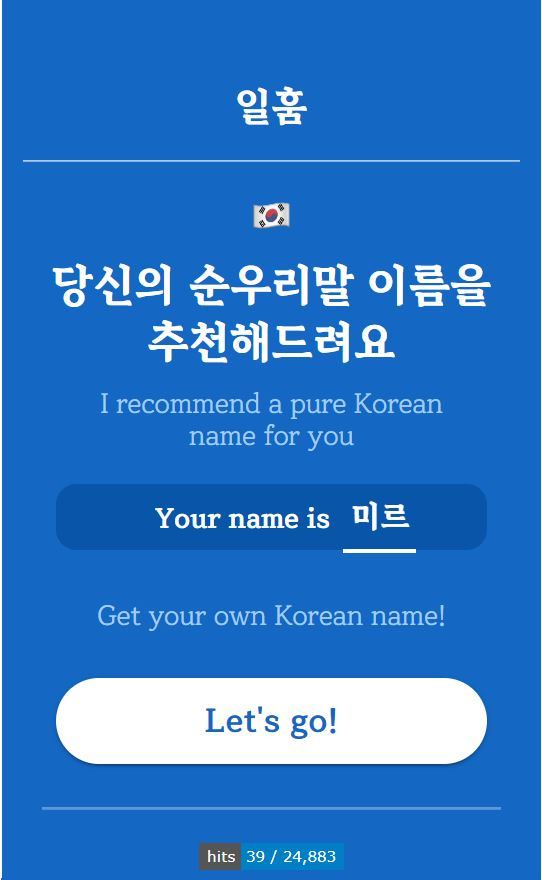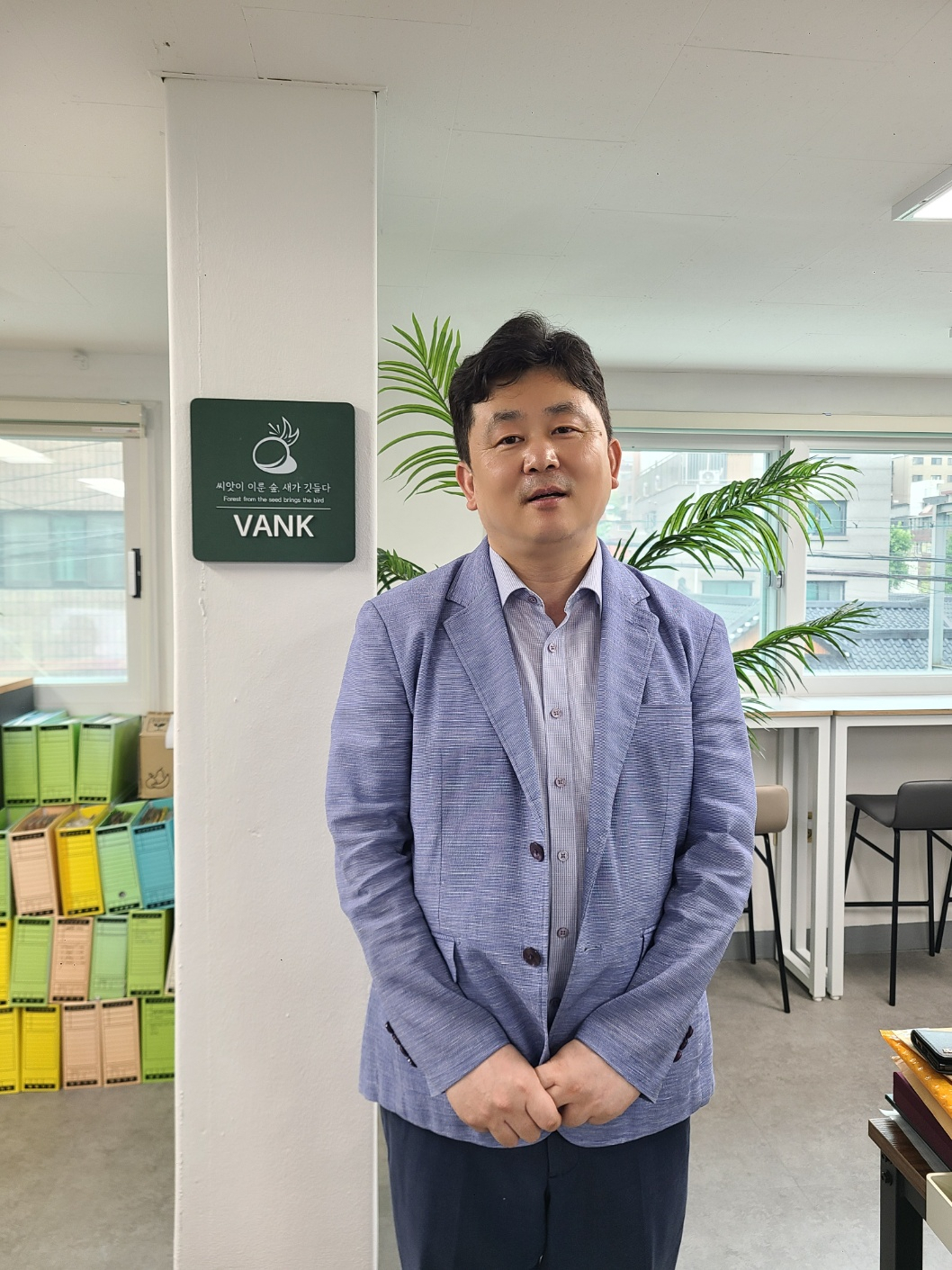
South Korean organizations are attempting to bring back “pure Korean,” or “soonwoorimal” -- purely Korean words or Hangeul terms not based on Hanja (Chinese characters) or other languages.
Pure Korean has been swiftly forgotten due to the rise of the internet, which has led to faster adoption of slang and abbreviations and accelerated the erosion of the Korean language, several experts claim.
Against this tide, a local civic group that has been promoting the Korean language and culture for more than two decades has utilized the internet to remind people of the beauty of pure Korean.
In late April, the nongovernmental organization Voluntary Agency Network of Korea, more widely known by its abbreviation VANK, jointly launched a website with local education platform Impactus that helps users find their “pure Korean” names.
The Korean name generator site, dubbed “Ilhoom” (https://korean.im), has gotten nearly 25,000 hits as of Sunday, data provided VANK showed. Eighty percent of the visitors were foreigners. Ilhoom is the old Korean word for “ireum,” which means “name” in Korean.
“As a child, I received the English name ‘Mike’ during my English class at school,” VANK founder and head Park Gi-tae recently told The Korea Herald in an interview at the civic group’s headquarters in northeastern Seoul.
“Getting a new name like that in a different language bestows someone with a new identity. We wanted to do that in a more peaceful and fun way with pure Korean names,” Park added.
Learning your “pure Korean” name through the site is very easy. The user just needs to answer a few simple questions on their preferences among different English words that are accompanied by their Korean meanings.
Questions include picking between different Korean words such as "strong" and "gentle." Some of the resulting names include "Seul-A," a combination of "seulgiropda" meaning "wise" in pure Korean and "ooh-a hada" meaning "elegant."
Users can save images of their names and meanings in Korean. They can also rate their satisfaction with the name they received.
The entire process only takes three minutes or less.

“There are currently 170 million Hallyu or Korean culture fans around the world,” Park said, adding, “Hallyu works as a gate towards Korean culture, but we hope that Ilhoom platform will be able to shed light on Korean history as well.”
Historical significance of the Korean language
The significance of the pure Korean language, especially in a historical context, may be bigger than one might think, Park explained.
The language embodies the “will of Koreans,” which led to Koreans having their own language system and fighting off invasions from foreign powers.
“Some pure Korean vocabulary or old Korean that was used daily was forgotten due to Japan’s (1910-45) colonial rule of Korea,” he said.
“During that time, we were forced to learn and use Japanese and banned from speaking Korean in public for decades. Many pure Korean words became lost, and the Hangeul system in a way became more vulnerable to the effects of foreign languages.”

VANK isn’t the only organization attempting to protect and bring back the usage of pure Korean.
The state-run National Institute of the Korean Language has run a decadeslong project of replacing Korean words heavily affected by foreign languages or abbreviations with pure Korean.
As a successful example, the NIKL cited the word "nurrikun," which it developed and promoted to replace the word “netizen” – a Konglish word meaning online users combining the English words “internet” and “citizen.”
“The initial purpose of the project was to weed out remnants of the Japanese language that was deeply imbedded in the Korean language system,” a NIKL official said.
“Now it’s focused on cleaning up and organizing the language system, which has been affected by excessive abbreviations and slang.”
Other experts say that the use of more pure Korean words for Hangeul users will make everything easier.
“In using a language, smooth communication and consideration for users are important,” Kim Seul-ong, director of Sejong Institute of Korean Language & Culture said.
“And it’s also about basic human rights, because using difficult words can infringe on the public's right to information. Excessive use of foreign words and Hanja in the Korean language system builds barriers and results in discrimination,” he added.
This is part of The Korea Herald’s “Hello Hangeul” project which consists of interviews, in-depth analyses, videos and various other forms of content that shed light on the stories of people who are learning the Korean language and the correlation between Korea’s soft power and the rise of its language within the league of world languages. – Ed.





